
Sefton Gets Ship Shape and Bristol Fashion
William John Smith
Written and researched by David Bohl, with the kind help and documents supplied by World War 1 historians worldwide.


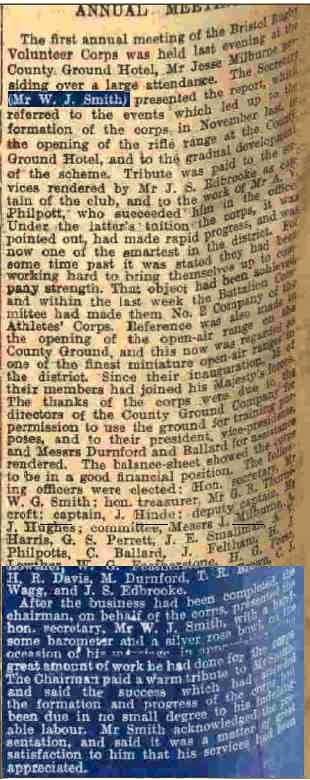
Born in 1890 in St Georges, Bristol he played his rugby to a high standard representing Gloucestershire at County level and played cricket for Avonside C.C.
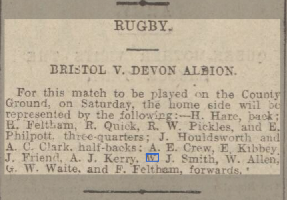
With the outbreak of World War
1 it looks like he was very involved
with the formation of a Bristol Rugby Volunteer Corps and by 1915 was
its Hon.Secretary.
His joining up papers with the Army Sevice Corps in 1916 contain a
signature which is undeniably the same as the entries in the Sefton
Minutes book of 1921.


He was posted to France in 1917
sailing from Southamton to Le Havre
and worked at probably the most important job of the war, the canteen
!
By 1918 he was wounded by Shell
Gas and
repatriated back to Blighty and
discharged from the Army. After his recovery he rejoined just in case
the war prolonged.
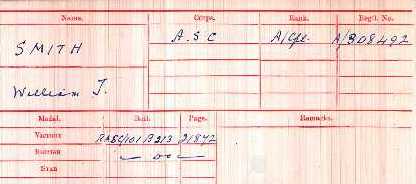
[Ancestry.co.uk
- military]
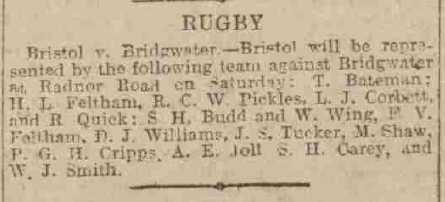
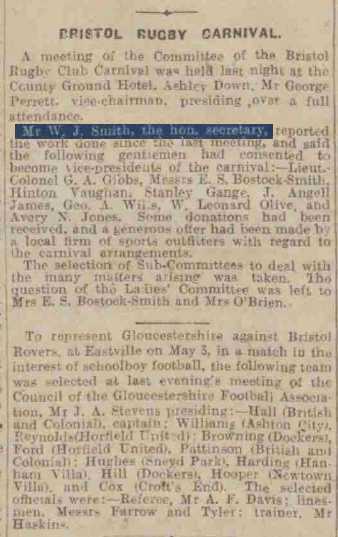 |
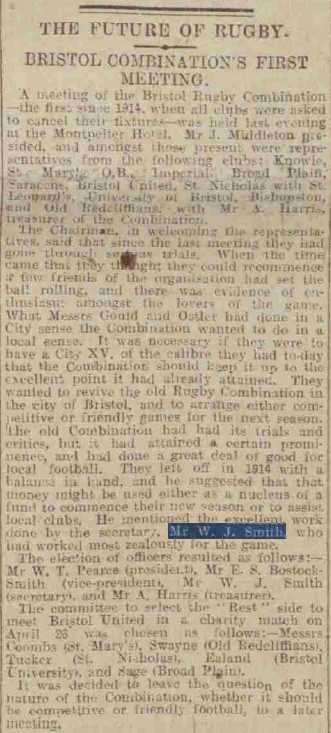 |
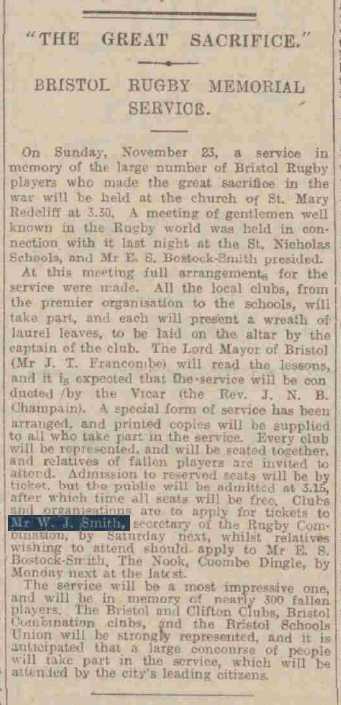 |
Prior to the hostilities Billy
was a Brewery Clerk, probably
at Bristol
Bewery Georges and Co.
They purchased extensive
premises in Bath Street in 1919.
With a new family and greater ambitions Billy sought or was offered a
position at Cains
Brewery in Liverpool.
The reason for his hooking up with Sefton RUFC is not known but he must
have made an immediate impact as he was made Chairman in the 1921/22
season, a postion he would hold for five years.
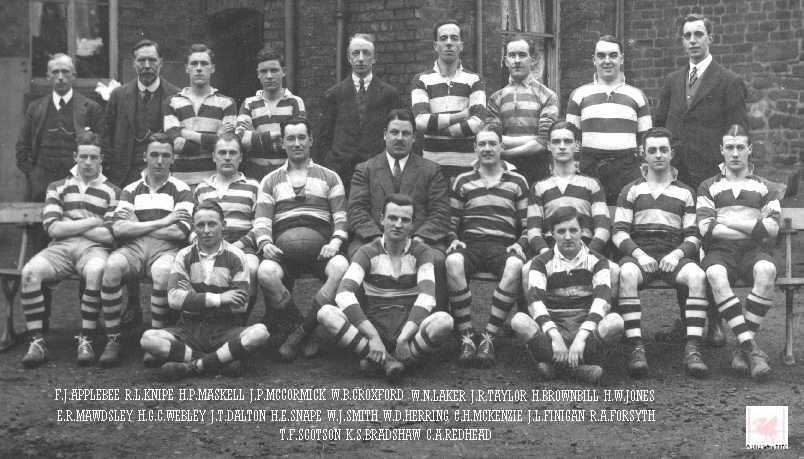
The club was in a sound
financial
position, and with
the knowledge that the need for a permanent ground was the greatest of
the present handicaps, a start was made with a ground fund. Thanks to
the energies of the treasurer, Mr. John Milbourn, and
the president, Mr W. J. Smith this was eventually achieved in
1929, see Survey.
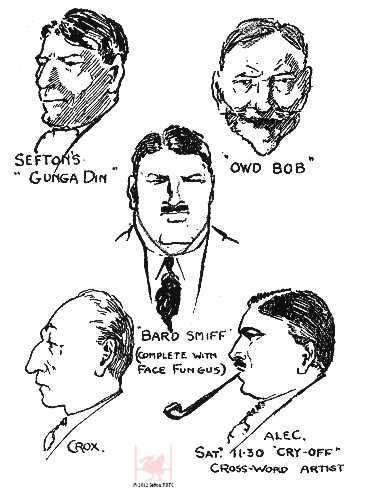
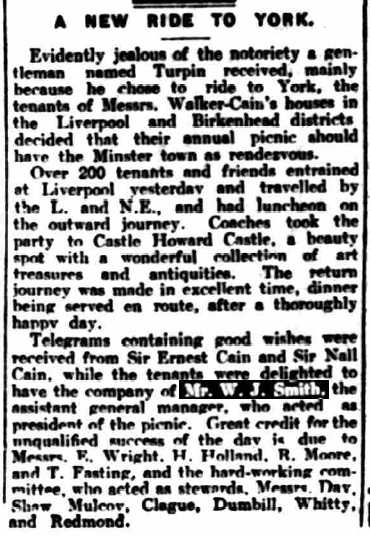
25/7/1925
Despite being in Liverpool, Billy still received accolades from Bristol
and never lost touch with his other great love, which was
Avonside Cricket Club. He would always travel down for the Annual
dinner to present the "W.J.Smith Bats" to the best batsman and bowler
of the season.
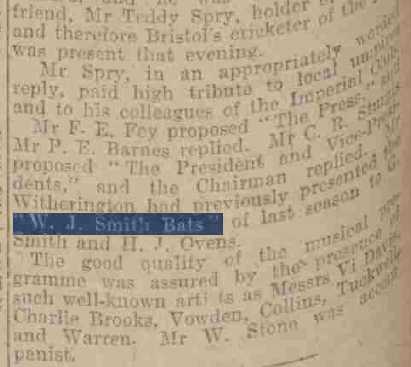 |
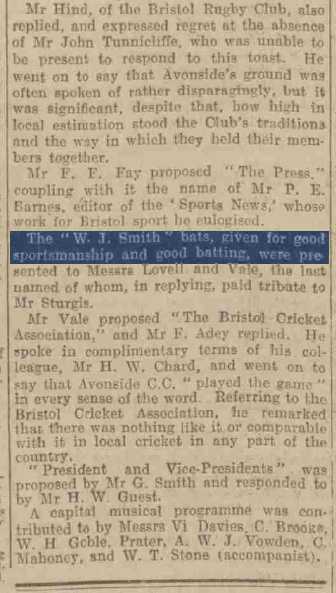 |
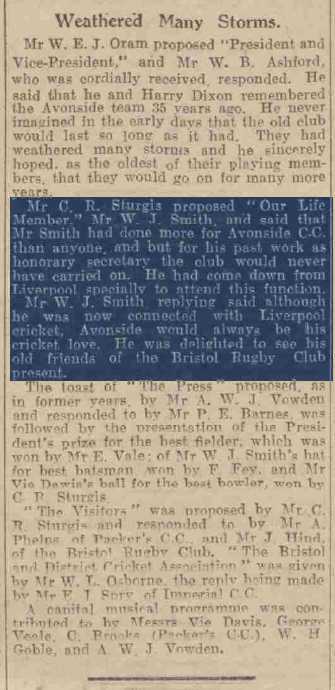 |
|
1924
|
1925
|
1928
|
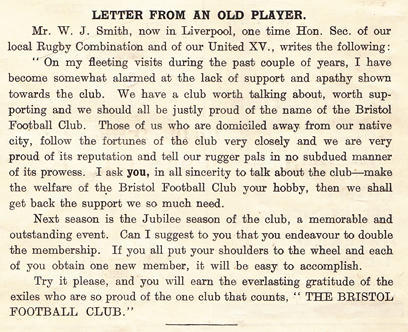
|
|
|
|
Army Service Corps Cap Badge |
|
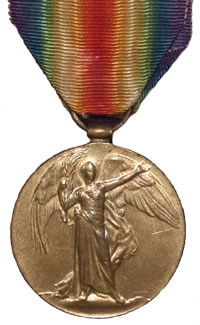 |
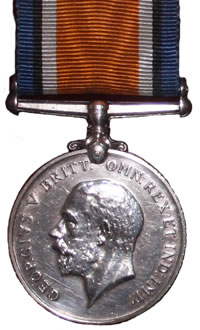 |
|
Victory Medal
|
British War Medal
|
Billy passed away in Liverpool's Royal Infirmary in 1958 aged 67
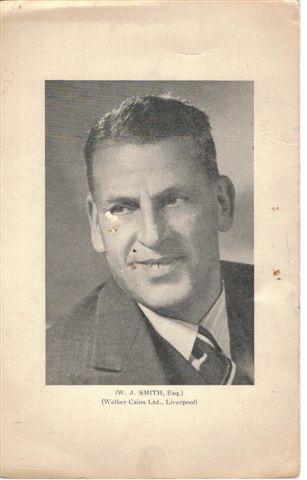
William John Smith
(1890-1958)
Appendix - Army Service Corps
Narrative from The Long, Long Trail (The British Army in the Great War)
http://www.longlongtrail.co.uk/
This section of the Long, Long Trail will be helpful for anyone wishing to find out about the history of the units of the Army Service Corps. Note that the ASC is the same as the RASC: it received the Royal prefix in late 1918.
The unsung heroes of the British army in the Great War - the ASC, Ally
Sloper's Cavalry.
Soldiers can not fight without food, equipment and ammunition. In the
Great War, the vast majority of this tonnage, supplying a vast army on
many fronts, was supplied from Britain. Using horsed and motor
vehicles, railways and waterways, the ASC performed prodigious feats of
logistics and were one of the great strengths of organisation by which
the war was won.
Who or what was
Ally Sloper?At peak, the ASC numbered an incredible 10,547 officers and 315,334 men. In addition were tens of thousands of Indian, Egyptian, Chinese and other native labourers, carriers and stores men, under orders of the ASC. Yet this vast, sprawling organisation - so vital to enabling the army to fight - merits just four mentions in the Official History of the war.
The ASC was organised into Companies, each fulfilling a specific role. Some were under orders of or attached to the Divisions of the army; the rest were under direct orders of the higher formations of Corps, Army or the GHQ of the army in each theatre of war.
All Aliens RFC, Sefton RUFC photographs, programmes and memorabilia Copyright © 2012 Sefton RUFC